Are You Discouraged About Your Riding?
You need to hear this. So I’m going to be the one to say it, but you deserve some credit for how far you’ve come as a rider. No, you really do. What you’ve accomplished and how far you’ve come is impressive, and it needs to be celebrated.
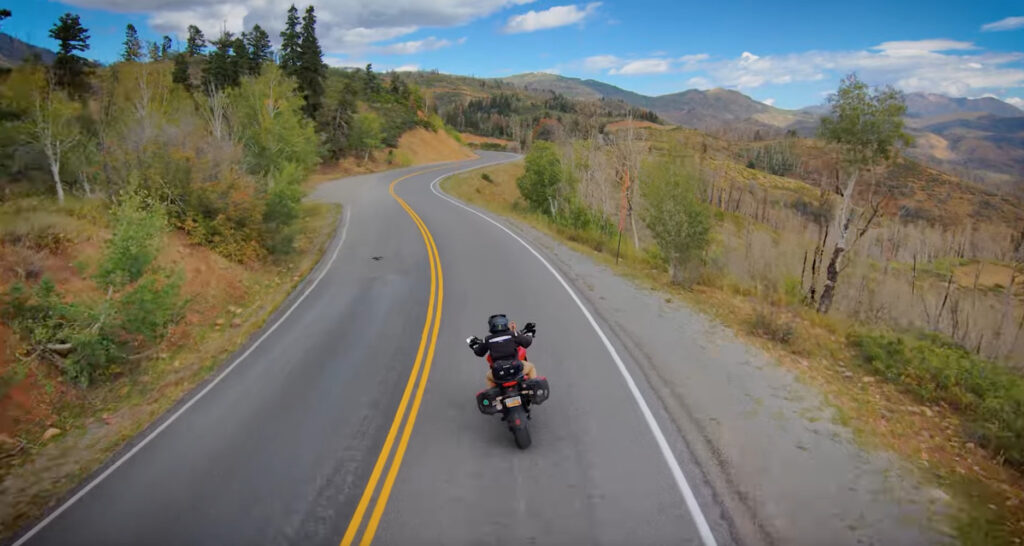
So why do I say that? I’ve never seen you ride, but I get e-mails and comments daily. A lot of you guys are really discouraged. You feel like your riding isn’t progressing as quickly as you’d like. You’re still struggling with some basic things, like stupid U-turns. Seriously, guys, U-turns aren’t that important. Just put your foot down.
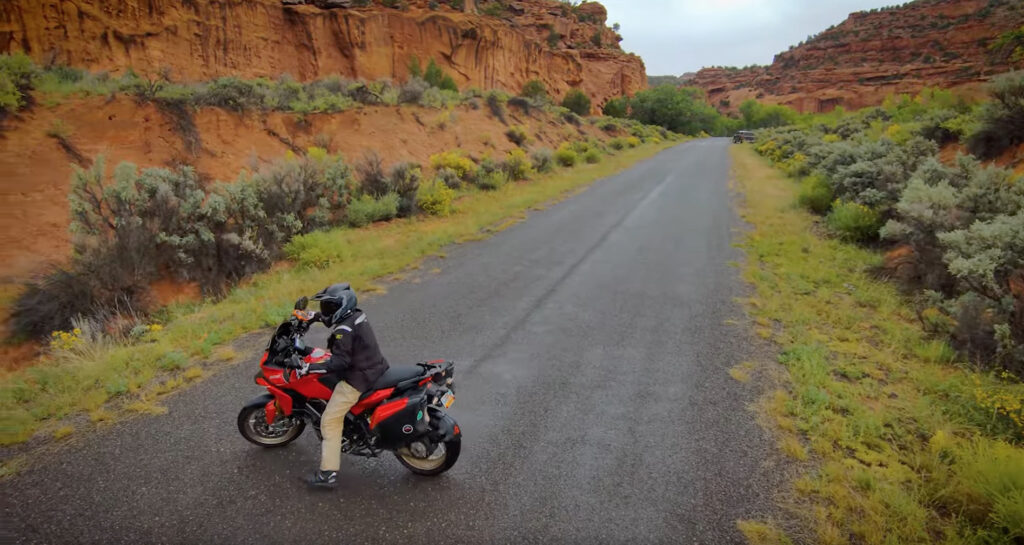
The point of this video is not to beat ourselves up over where we’re struggling, but to recognize
and celebrate our successes. And this isn’t just me saying this. I reached out to two really amazing
therapists who also ride motorcycles so they could understand where we’re coming from.
I wanted to better understand why so many of us get so discouraged and so down on our riding progression. And I say “us” because I’m in that boat, too. I’ve had times where I was so discouraged, I seriously and legitimately considered giving up.
Kathryn Dennett Carpenter, a Psychotherapist said “What you’re getting at is a really crucial part of how we learn to work with ourselves as humans. Maintaining the motivation in the face of challenges. And if that’s not a life lesson, right? Like we can apply it to motorcycles,
we can apply it to anything in life that this is… this is the stuff of being human.”
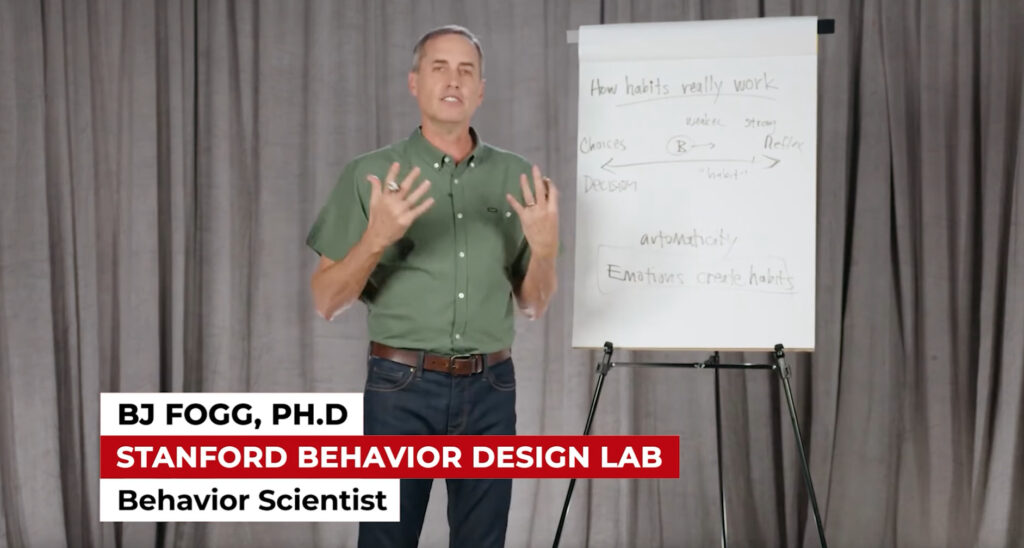
Leading Behavior scientist BJ Fogg says there is a powerful link between emotions and habits. He says that habit formation is not just a matter of 21 days of consistent practice. Celebrating victories, even small wins stimulates dopamine being released into the brain while focusing on failures, stimulates the release of cortisol. Over time, cortisol causes lots of bad health outcomes, not the least of which is anxiety and depression. While dopamine makes us feel pleasure,
satisfaction and motivation.
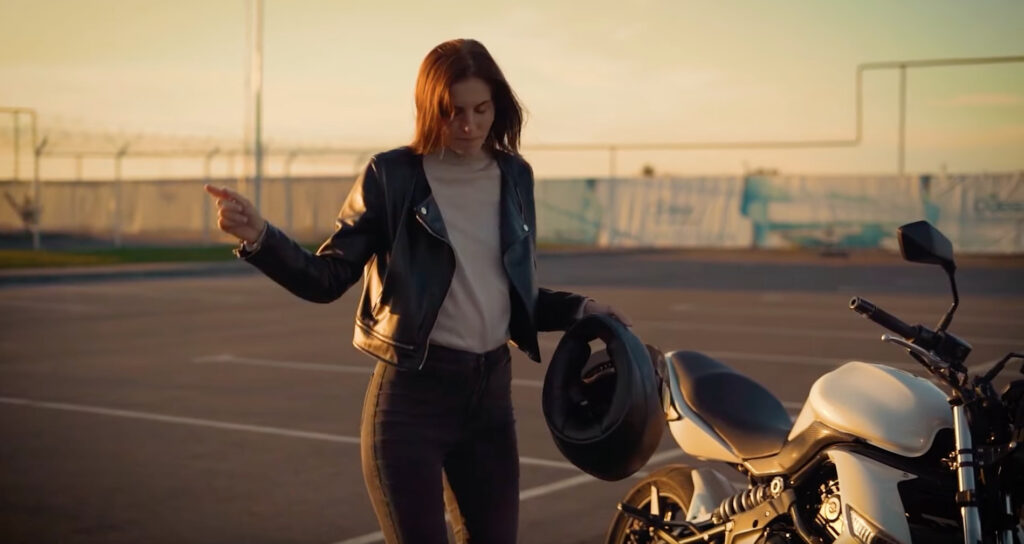
“One of the ones that I hear a lot of is I can’t or, I don’t know if you want to say, a casual rider
or I’m not a good rider.” Said Dave, a Licened Clinical Therapist. “Whenever we’re talking about that
and we’re kind of using those labels as an identifier, that’s kind of becoming a sign that we are seeing as part of our identity. So those mistakes or those setbacks become very personal. Like this is who I am. It’s not what I’m doing.”
“For some people, it’s being able to realize that they take on too much,” said Kathryn “They don’t celebrate the little pieces. Or maybe it brings up I can never get it right. And so it taps into past difficulties or past failures. If we take a moment to think about our own experience with discouragement, we may be able to start having an insight into what our particular struggle is.”
We are hearing a lot more about self-talk lately. The Chris Hemsworth series Limitless has an entire episode about it. Where does this self-talk come from and why does it hold so much power over us?
According to Kathryn, “That critical voice is a is a voice often of taking in from a primary caregiver in your past and we have internalized it so profoundly that it becomes almost our own method of being. So this is like if you grew up and somebody who was always telling you, like, Oh, you’re doing that wrong, you’re doing that wrong. And in a lot of ways it doesn’t have to be a bad parent
or a bad sibling. It could be your two and you don’t know how to do things yet. And so, of course,
you won’t know how to do it. And so somebody who has really critical self-talk that’s been there for a while.”
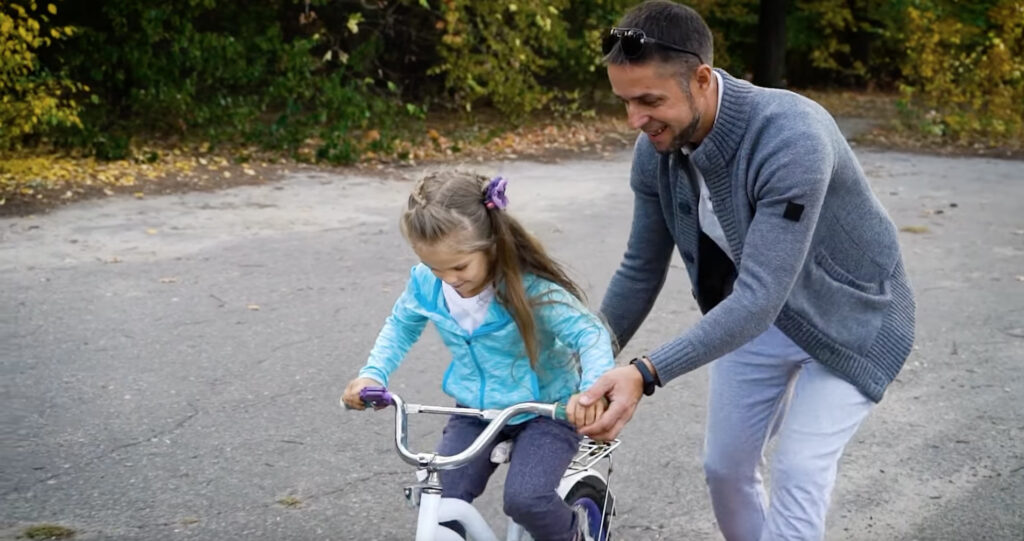
In our brain, the neural pathway or the circuit that represents a particular thought gets activated
every time we have that thought. The more often we think that thought, the more entrenched that pathway becomes.
“I think sitting in this chair,” said Kathryn “I don’t want to say it’s all about your mother. It’s all about your father. These are complicated things. And it’s not so simple as to say we just all had terrible parents and now we’re all, you know, carrying around the scars of that. It’s more to say that these are these are nuanced things that we carry inside of us. And most of us who are fairly functioning in the world will still have these nuanced things that we carry that were meant to be adaptive. They were meant to help us function in that relationship. And now they’re not helping us.”
“Because we’re much more discerning over negative external messages than we are negative internal messages,” said Dave. “One of the things that we can do to challenge that is if we were to hear that message about ourselves from some external source, would we just accept that and take it in? Most of the time we wouldn’t. We want to use those natural defenses that we have against external emotional threats when we’re kind of saying that about ourselves. Would we say that thing to a friend? Would we accept that if someone said it to us? Usually not.”
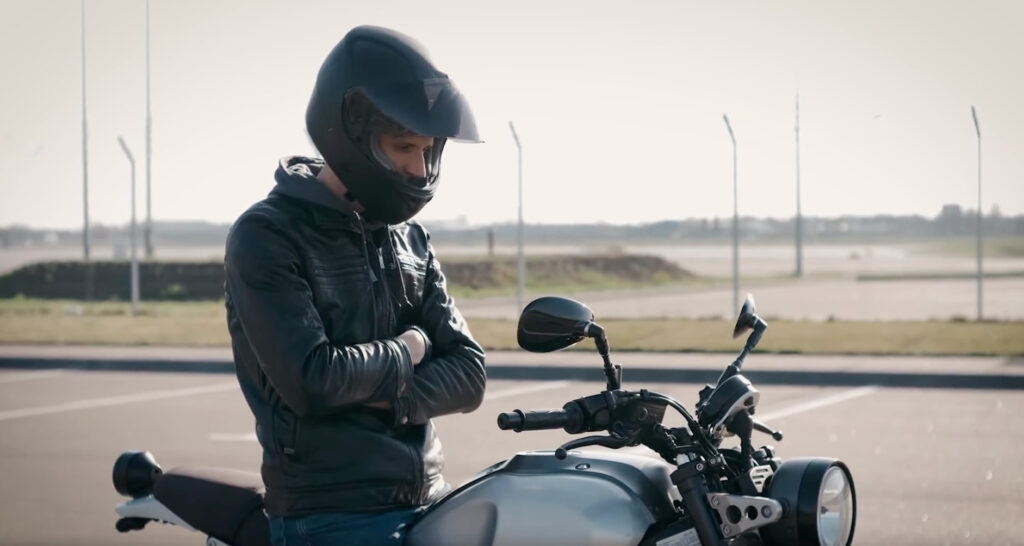
According to Kathryn “Sometimes these things that we internalize that are our Achilles heel are actually things that have really allowed us to be very successful. And so it’s nuanced. We don’t just want to get rid of it wholesale. We want to be able to pick and choose when to take on those particular ways of being. And if we’re conscious of it, then we can pick and choose.”
“But also identifying where is that thought twisted around?” said Dave. “Where is it not accurate? Like I blow a corner, I run wide or I apex too early. I suck as a rider! Okay, well, hang on. Let’s take a look at that. I suck. Let’s kind of name calling. Or this is pointless. Well, that one’s all or nothing thinking. I make one mistake and everything is out the window. Spotting where those distortions are
gives us a chance to kind of intervene and notice it and the first time you notice it’s going to be after the fact. Like you’re going to blow the corner, you’re going to get frustrated, you’re going to have that moment of negative self-talk, and then later that day you’re going to be like, Oh, I should have caught that. And now you have another moment of negative self-talk and regret about the fact you didn’t catch it. It’s a nasty little cycle.”
And get this, how well you ride how well you can do a U-turn or hit all of your apexes or whatever has very little to do with who you are as a human.
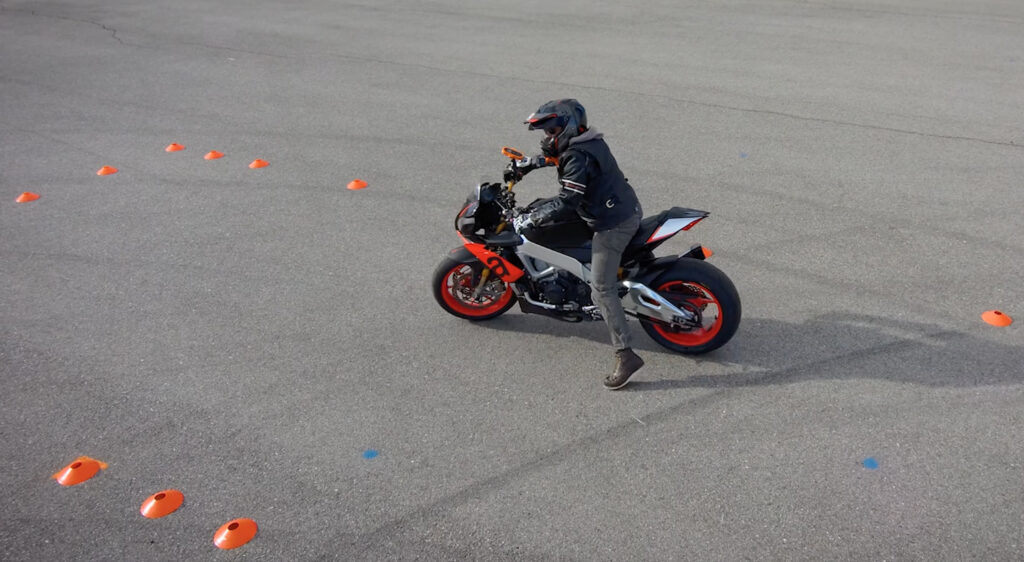
“And so, so often this negative talk that you’ve mentioned and I think also the discouragement about perfection is when we link our activities to our self-worth,” said Kathryn. “So if we can uncouple these things, if we can say my my experiences learning a new activity don’t have measure on myself as a person. If I can start to create that space, then I can tackle things without the internal weight of also my self validation or self judgment.”
“The other thing is I think it makes us more accepting that mistakes or misjudgments are a part of our process and also noticing those mistakes without judgment,” said Dave. “You know that we’re not calling it bad. We’re not beating ourselves up or calling ourselves names. We’re kind of dispassionate. We kind of step back and go, okay, that didn’t go as well as I wanted it to. That allows us to accept that mistake or that judgment in a way that allows us to plan for next time.”
Going back to when I almost walked away from this sport that I love so dearly, it was largely due to the information I was getting about riding. I say this all the time, but our sport has a real problem. The signal to noise ratio is way out of whack. When I look at other activities I participate in, namely mountain biking, bad information is fairly uncommon and pretty easy to pick out. Not so much with motorcycles. Bad information is everywhere.
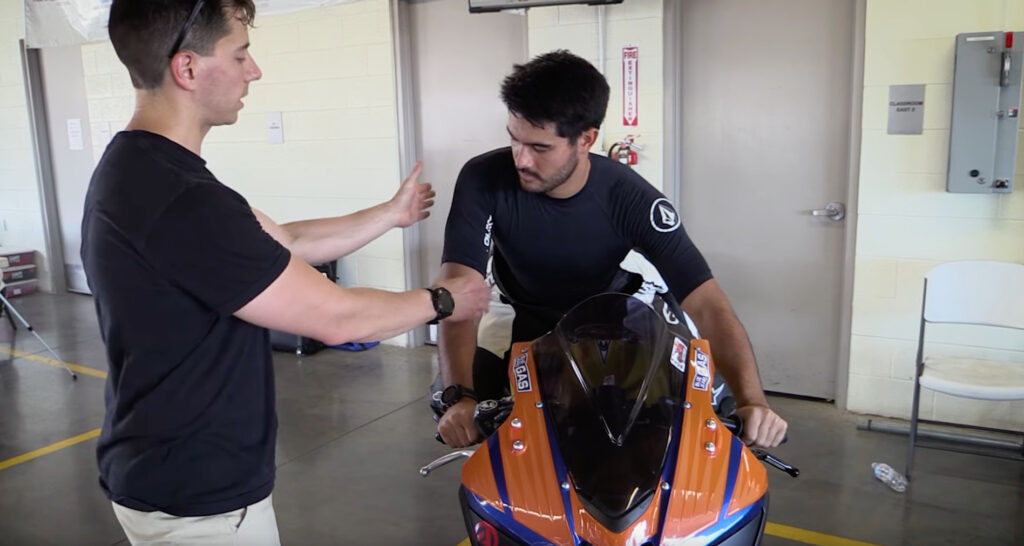
“Does that mean that the sport is inherently problematic?” Said Kathryn. “Maybe. And maybe not. Maybe it’s finding another voice. You know, I think I don’t think it’s an accident that I didn’t learn to ride until I met you guys, because there was something about the way that you spoke that was clearly grounded in technique and grounded in the love of the sport versus so many of those other voices are there to impress. Especially to impress women, you know, impress or somehow have a different type of agenda. Right. And these things are. Nobody’s going around saying, well, I ride motorcycles because I want to impress people and I want to take risks. And I’d like you to do that
with me to validate what I’ve done. Nobody’s going to see that to you. So it’s it’s our job as people, as learners, to know that we are our own advocate and to and to look for the voices that work for us.”
Our sport is fraught with tradition and heritage. It can be seen in every café racer, scrambler and cruiser on the market, and that overflows into riding advice as well. We teach this because this is what we’ve always taught to the point of it almost becoming gatekeeping. You should suffer through this thing, that doesn’t really matter, because I had to suffer through it.
In a recent podcast we did, we talked about this a little bit, validating sources, and Alex talked a lot about ways to reality check, some of the advice that gets handed out a lot, but we can have a multi-pronged attack here.
Kathryn said “As Malcolm Gladwell talks about the 10,000 hours. I think that’s what people are learning in those 10,000 hours is how to take what we’re given as the foundation or the organization and how to bend it and make nuanced changes so that it works for us because there’s no other me,
there’s no other you in the world. There’s nobody who has quite the same length leg to arm to hand ratio, right? Nobody’s going to sit on a motorcycle in quite the same way. Who am I going to listen to? It’s important to to listen to people. And then it’s important to figure out if it doesn’t work for you, then then move on.”
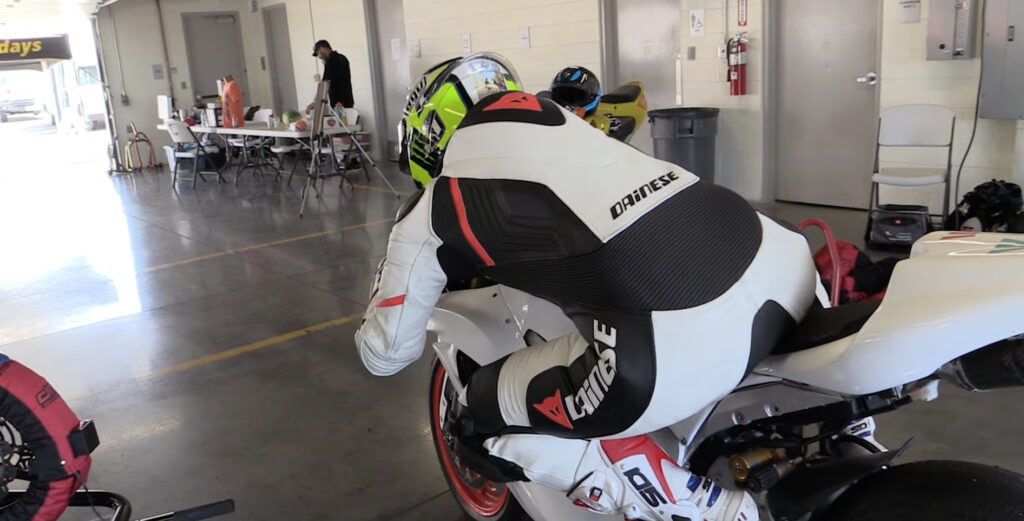
Right now, I want you to sit back and look at how far you’ve come. Right now. How far you’ve actually made it. Just getting up the muster to sign up and take a basic rider course. That’s something. Be proud of that.
“Noticing that achievement, noticing that slight step in the right direction and celebrating it and recognizing it gives us the emotional energy to keep going,” Said Dave. “Because without that we become discouraged and we’re very likely to give up because I’m not achieving what I set out to achieve. So I can work on, okay, so next time I’m going to get to, I’m going to try that this way, or next time I’m going to get that corner better, or for the next corner. It’s one of the things I like about
the track is that I get another chance. I get another bite at that same corner. It’s like, man, that corner really tripped me up this time. But in about two minutes, I’ll get another chance at it.”
Listen, if we allow our attention to be consumed with obstacle after obstacle, it’s very easy to feel defeated and powerless. But when we take the time to celebrate little victories, we’re basically making deposits into our confidence Bank.
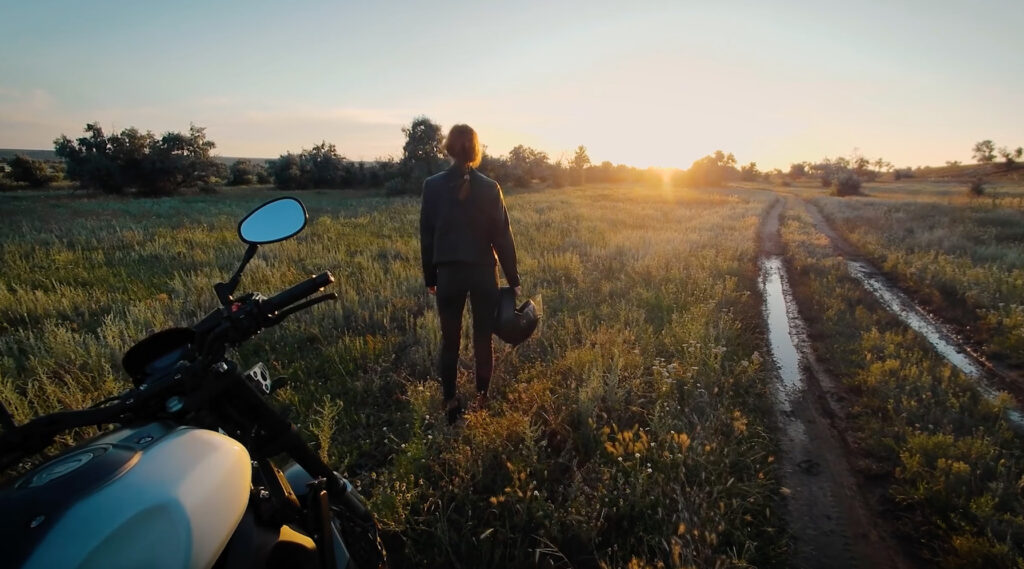
“We’ve always heard the phrase practice makes perfect, practice makes permanent,” Said Kathryn. “If we use a neural network over and over again, it’s the network that we go to. So if we’re always criticizing ourselves, well, then we’ve really made it very habitual to continue to criticize ourselves. If we start to celebrate things and we make it much easier for us to continue to celebrate things, if we celebrate those little things along the way, it’s practice and celebrating. It seems counter that we would need to practice celebration, but it’s like any other skill. If you can practice celebration,
you can get better at it.”
I’m here to tell you, even though I haven’t seen you ride and I have no idea where you’re trying to improve, you deserve credit for being where you are. There’s a good chance you may already be
in the top percentile of riders. Going back to one of our earlier podcasts, we learned that only 5% of riders go on to even just take a second riding course.
Dave said “Even if you’re riding, you know, a fairly slow or, you know, fairly common bike on the street, you’re not doing track days, you’re not doing canyon rides, you’re not going fast. You’re already a higher achieving vehicle operator than most of the people out there. The vast majority of people have no idea how to ride a motorcycle, how to get it to accelerate, stop and turn. And just even noticing that, I mean, that’s something that I don’t think that we give ourselves credit for most of the time. If we wait until we praise perfection, we are going to be waiting forever. Perfection is unattainable.”
“If we wait until we praise perfection, we are going to be waiting forever. Perfection is unattainable.”
A great way to teach ourselves to celebrate is by setting goals, but being willing to adjust and change those goals along the way. A goal isn’t something that is set in stone. Think of it as scratched in the sand. It can be easily changed or modified.
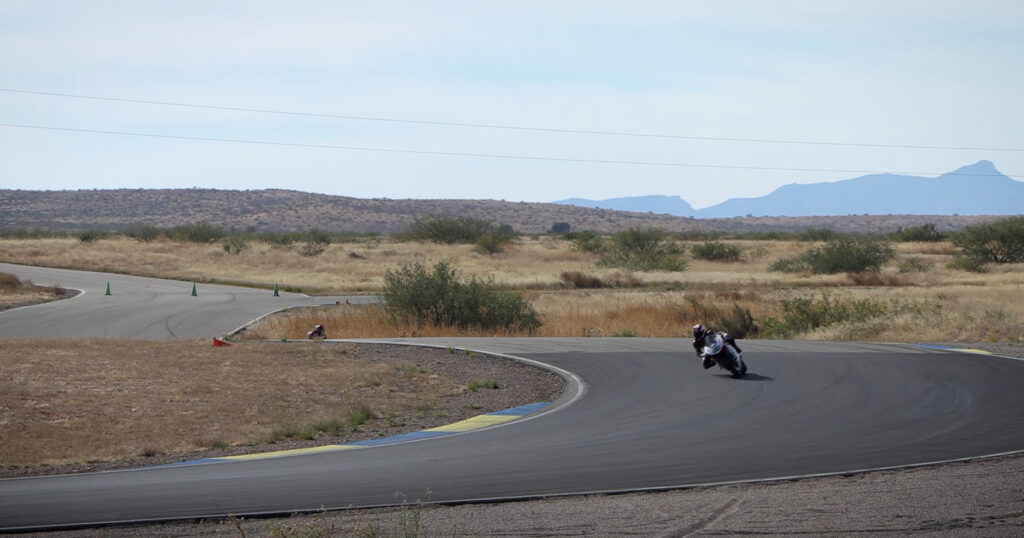
“If somebody says, okay, I’ve been competing in this class on the track and I’d like to place in the top three this year. Okay, well, that’s a skill that has been practiced. They the person understands and knows what it means to take on that type of goal,” said Kathryn. “But if somebody comes from the street and says, I want to be a top rider in the track, that’s such a large goal that it inhibits
the ability to really learn in the meantime, if that’s even something that this person’s going to enjoy or have an aptitude for.”
In all my years of coaching, one thing that I’ve noticed time and time again is many of us make riding goals that are too far ahead. Many of us are focusing on things that are over the horizon, things we can’t see yet at the cost of what we can see and do something about right now.
Dave said, “And I think when it comes to riding, we want to do the same thing. If I’m trying to be a MotoGP rider, well first of all, that’s probably not a reasonable goal. But can I be a more proficient rider? Can I shave seconds if I’m a track rider? But maybe for this track day or just this session, or just this road, just this corner from now to the next gas stop? Yeah. What am I working on? What am I thinking about?”
“If I’m discouraged about something,” said Kathryn, “can I break it down into smaller pieces and then we can come back to celebrating those pieces along the way? But if I’m discouraged about apexing every corner at the track, can I just try to apex successfully one corner? Maybe. I just want one and then I’m going for two.”
So what I learned was that we can basically break everything down into three basic steps. Education. Self Awareness.
“And then the third piece,” said Kathryn “is can you take on small enough challenges so that you can be successful? And that’s going to create encouragement going forward. And I think those are three pretty different pieces.”
But at the end of the day, and this was the whole point in making this video, you deserve credit and you should be proud of getting this far. Dave said something that really resonated with me,
and I hope it’ll resonate with you.
“Let’s take a look at where you were when you first started riding or when you first decided to ride a motorcycle. What advice would you give to that past version of you? Well, guess what? There’s a future version of you out there looking back at you today, doing the exact same thing. Accept that idea that there is a future version of you that has overcome whatever this difficulty is, and is that more proficient, more confident, more stable, quicker, whatever the measure is, they are more of that.”
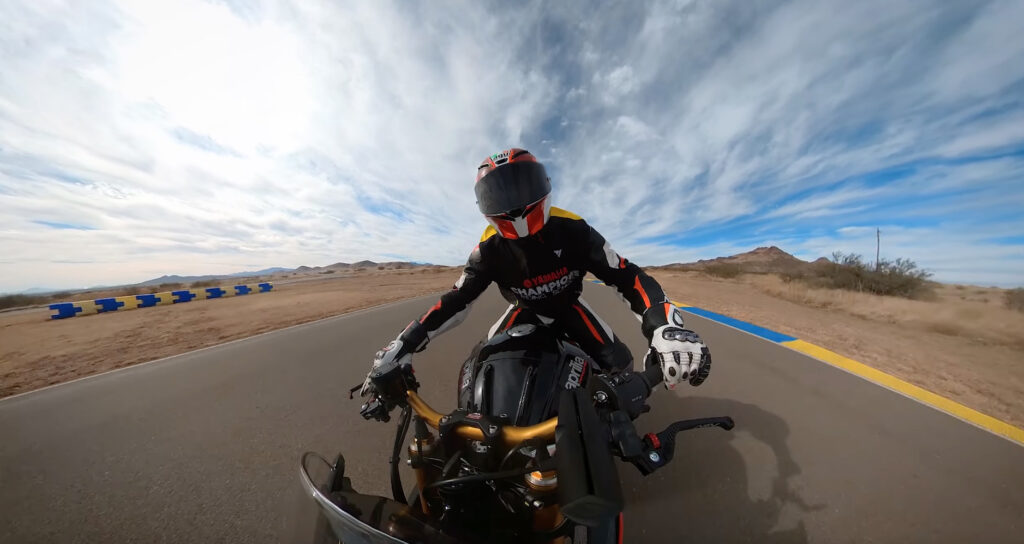
So remember, guys, I’m good enough, I’m fast enough, and gosh darn it, people like me. And and I hope you found something in here that you’ll take with you on your next ride. Celebrate your successes. Do that parade lap and plant the flag in your favorite corner.



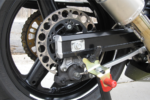

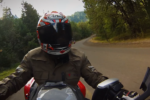

Most riders I’ve come across have no interest in taking courses. Most only take a beginner course to get their license. That’s the problem right there. Take a course. Then practice the same moves in a parking lot. Take the same course again. Practice some more. Once the moves become second nature, take an intermediate course and keep at those moves the same way. Feeling OK about riding without continuous skills development is dangerous.